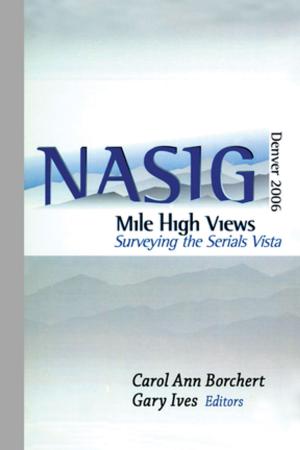National Identity and the Agrarian Republic
The Transatlantic Commerce of Ideas between America and France (1750–1830)
Nonfiction, History, Modern, 19th Century, Business & Finance, Economics, Economic History| Author: | Manuela Albertone | ISBN: | 9781317090090 |
| Publisher: | Taylor and Francis | Publication: | April 22, 2016 |
| Imprint: | Routledge | Language: | English |
| Author: | Manuela Albertone |
| ISBN: | 9781317090090 |
| Publisher: | Taylor and Francis |
| Publication: | April 22, 2016 |
| Imprint: | Routledge |
| Language: | English |
With a few exceptions, historiography has paid little attention to the impact of French economic thought during the American Revolution, focusing instead on the Revolution’s links with Britain. This book outlines how, from the mid-eighteenth to the early-nineteenth century, the political and social dimension of French economic thought, and particularly of Physiocracy, spurred American Republicans to a radical shaping of American agrarian ideology. Such a perspective allows for a reconsideration of several questions that lie at the heart of contemporary historiographic debate: the connection between politics and economics; the meaning of republicanism; the foundations of representation; the role of Europe in the Atlantic world; and the interaction between national histories and global context. In particular, the research methodology adopted here makes it possible to reconstruct how American national identity, conceived as an expression of society in economic terms, emerged through a cosmopolitan way of thinking focused on the uniqueness of the new state.
With a few exceptions, historiography has paid little attention to the impact of French economic thought during the American Revolution, focusing instead on the Revolution’s links with Britain. This book outlines how, from the mid-eighteenth to the early-nineteenth century, the political and social dimension of French economic thought, and particularly of Physiocracy, spurred American Republicans to a radical shaping of American agrarian ideology. Such a perspective allows for a reconsideration of several questions that lie at the heart of contemporary historiographic debate: the connection between politics and economics; the meaning of republicanism; the foundations of representation; the role of Europe in the Atlantic world; and the interaction between national histories and global context. In particular, the research methodology adopted here makes it possible to reconstruct how American national identity, conceived as an expression of society in economic terms, emerged through a cosmopolitan way of thinking focused on the uniqueness of the new state.















